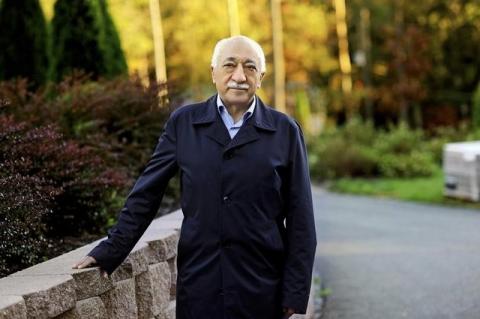Advertisement
Turkey officially designates Gulen religious group as terrorists
ISTANBUL (Reuters) - President Tayyip Erdogan officially designated the religious movement of U.S.-based Islamic cleric Fethullah Gulen a terrorist group and said he would pursue its members whom he accuses of trying to topple the government.
The move puts the organization built by his former ally legally on par with Kurdish militants currently fighting the army in Turkey's southeast. Erdogan might use the designation in pressing Washington to extradite Gulen, a step U.S. authorities are nonetheless unlikely to take without concrete grounds.
"We will not let those who divide the nation off the hook in this country," Erdogan told flag-waving supporters upon arriving late on Monday in the coastal city of Izmir where he will observe military exercises.
"They will be brought to account. Some fled and some are in prison and are currently being tried. This process will continue."
Erdogan said the cabinet had approved a decision to designate Gulen's followers as the "Gulenist terror group".
Erdogan, accused by his critics of an increasingly authoritarian style of rule, has long described Gulen as a terrorist. He seeks to break the cleric's influence, built on a network of schools and companies in Turkey and abroad.
WORLDWIDE OPERATIONS
Affiliated media firms have been shut down or taken over, a bank seized, and hundreds of people detained. Thousands of the cleric's followers in the police and judiciary have either lost their jobs or been reassigned.
Erdogan accuses Gulen of conspiring to overthrow him by building a network of supporters in the media, judiciary and education. Gulen denies the charges.
The two were allies until police and prosecutors seen as sympathetic to Gulen opened a corruption investigation into Erdogan's inner circle in 2013, 11 years after Erdogan's AK Party was elected to power.
Gulen, who has lived in self-imposed exile in the United States for more than a decade, preaches Sunni Islam together with a message of interfaith dialogue. His movement, known as "Hizmet" or "Service" operates in Europe, the United States, Asia and Africa.
His followers say they are victims of an unfair crackdown. Last year, the Turkish government hired an international law firm to investigate the worldwide activities of the movement.
(Writing by Daren Butler; Editing by David Dolan and Ralph Boulton)



















Add new comment